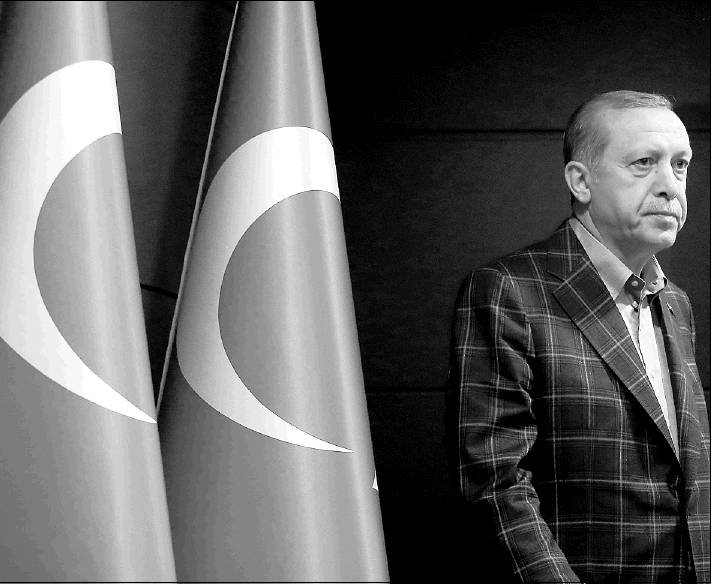Turkey vote expands president’s powers
Foes allege fraud in referendum whose stipulations included abolishing the prime minister’s office.
By Elena Becatoros, Suzan Fraser And Zeynep Bilginsoy ASSOCIATED PRESS
ISTANBUL — Turkish President Recep Tayyip Erdogan won a historic referendum Sunday that will greatly expand the powers of his office, although opposition parties questioned the outcome and said they would challenge the results.
With nearly all ballots counted, the “yes” vote stood at 51.41 percent, while the “no” vote was 48.59 percent, according to the state-run Anadolu Agency. The head of Turkey’s electoral board confirmed the “yes” victory and said final results would be declared in 11 or 12 days.
Although the margin fell short of the sweeping victory Erdogan had sought in the landmark referendum, it could nevertheless cement his hold on power in Turkey and is expected to have a huge effect on the country’s long-term political future and its international relations.
The 18 constitutional amendments that will come into effect after the next election, scheduled for 2019, will abolish the office of the prime minister and hand sweeping executive powers to the president.
Erdogan, who first came to power in 2003 as prime minister, had argued that a “Turkish-style” presidential system would bring stability and prosperity to a country rattled by a failed coup last year that left more than 200 people dead, and a series of devastating attacks by the Islamic State group and Kurdish militants.
In his first remarks from Istanbul after the vote count showed the amendments winning approval, Erdogan struck a conciliatory tone, thanking all voters no matter how they cast their ballots and calling the referendum a “historic decision.”
“April 16 is the victory of all who said ‘yes’ or ‘no,’ of the whole 80 million, of the whole of Turkey,” Erdogan told reporters in a live televised address.
But he quickly reverted to a more abrasive style when addressing thousands of flag-waving supporters in Istanbul.
“There are those who are belittling the result. They shouldn’t try, it will be in vain,” he said. “It’s too late now.”
Responding to chants from the crowd to reinstate the death penalty, Erdogan said he would take up the issue with the country’s political leaders, adding that the question could be put to another referendum if the political leaders could not agree.
He also took a dig at international critics. During the referendum campaign, Ankara’s relations soured with some European countries, notably Germany and the Netherlands. Erdogan branded officials in the two nations Nazis for not allowing his ministers to campaign for the expatriate vote there.
Opponents had argued that the constitutional changes would give too much power to a man they say has shown increasingly autocratic tendencies. Opposition parties complained of a number of irregularities in the voting and were particularly incensed by an electoral board decision announced Sunday afternoon to accept as valid ballots that did not bear the official stamp.
“The Supreme Electoral Board changed rules mid-game, after the ballot envelopes were opened, in a way contrary to laws,” said Kemal Kilicdaroglu, head of the main opposition People’s Republican Party.
But electoral board head Sadi Guven defended the decision.
“There is no question of changing the rules in the middle of the game,” he said.
A pro-Kurdish opposition party that also opposed the constitutional changes said it plans to object to two-thirds of the ballots.
Given the contested outcome, Fadi Hakura, a Turkey specialist at the London-based think tank Chatham House, described Erdogan’s win as a “pyrrhic victory that comes at a huge political cost.
Initial reaction from abroad was cautious. Three top officials for the European Union — EU Commission chief Jean-Claude Juncker, EU foreign policy chief Federica Mogherini and Enlargement Commissioner Johannes Hahn — said in a joint statement they “take note of the reported results” and were awaiting a report from international election observers.
Austrian Foreign Minister Sebastian Kurz said the referendum was bound to complicate further cooperation between Ankara and the EU. Kurz said on Twitter the result “shows how divided the country is. Cooperation with (hash)EU will become even more complex.”
